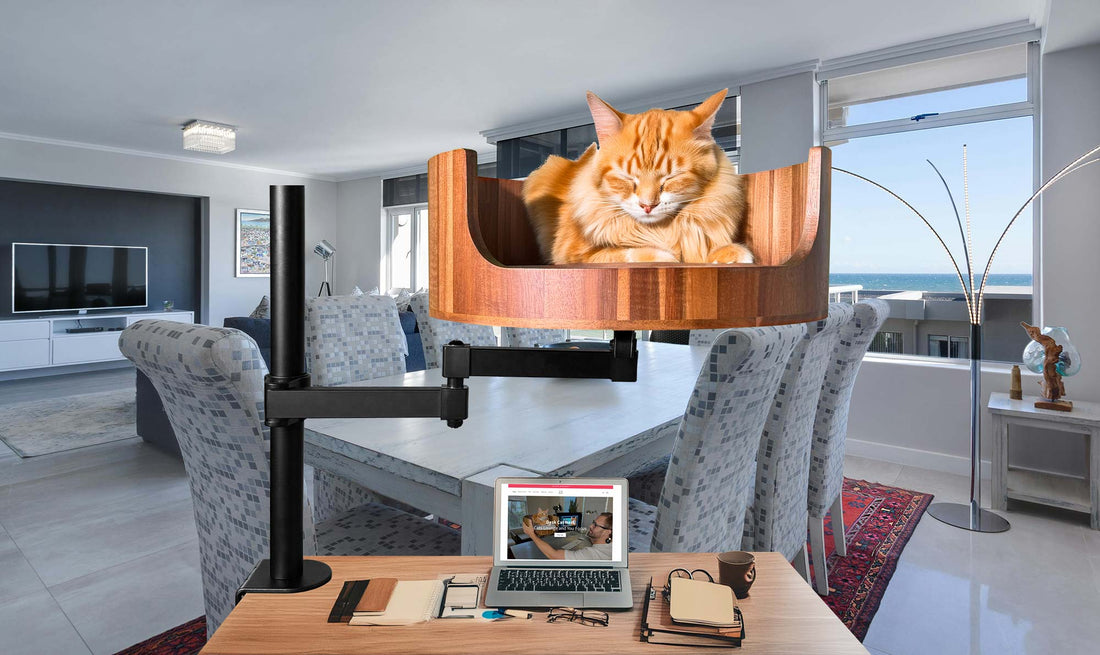
Snoring in Cats: Understanding Feline Sleep Sounds
Share
If you're a cat owner, chances are you've heard your furry friend snoring at some point. While it may seem endearing or amusing, understanding why cats snore can provide valuable insights into their health and well-being. In this article, we will explore the intricacies of feline sleep sounds, including the causes of snoring in cats and when it may be a cause for concern.
Snoring in cats is a common occurrence that can be caused by a variety of factors, including obesity, allergies, or anatomical abnormalities. While occasional snoring is usually harmless, persistent snoring could be a sign of an underlying health issue that requires veterinary attention. We will delve into the different types of snoring sounds that cats make, how they compare to human snoring, and what cat owners can do to help alleviate snoring in their feline companions. By gaining a better understanding of feline sleep sounds, you can ensure that your beloved pet gets the restful sleep they need to stay happy and healthy.
1. Snoring in cats is a common phenomenon caused by relaxation of the throat muscles during sleep.
2. Breeds with short nasal passages, such as Persian and Himalayan cats, are more prone to snoring.
3. Snoring can be exacerbated by obesity or underlying health conditions like allergies or respiratory infections.
4. While occasional snoring is usually harmless, persistent snoring may indicate a need for veterinary evaluation.
5. Creating a comfortable sleep environment, maintaining a healthy weight, and addressing any underlying health issues can help reduce snoring in cats.
Common Causes of Snoring in Cats
Some common causes of snoring in cats include obesity, allergies, respiratory infections, and structural abnormalities in the nasal passages or throat. Obese cats may have excess tissue in their airways that can obstruct breathing during sleep, leading to snoring. Allergies, such as to dust, pollen, or cigarette smoke, can also cause inflammation in the airways and result in snoring. Respiratory infections, such as feline upper respiratory infections, can cause congestion and nasal discharge, which can lead to snoring. Structural abnormalities, such as a deviated septum or elongated soft palate, can also contribute to snoring in cats.
Health Risks Associated with Snoring in Cats
While occasional snoring in cats may not be cause for concern, persistent or loud snoring could indicate an underlying health issue that needs to be addressed. Chronic snoring in cats can disrupt their sleep patterns and may result in poor quality of rest. This can lead to fatigue, irritability, and decreased immune function. Additionally, snoring can be a symptom of respiratory problems or other health conditions that require medical intervention. It is important to monitor your cat's snoring patterns and consult with a veterinarian if you have any concerns.
Treatment Options for Snoring in Cats
Treatment options for snoring in cats depend on the underlying cause of the snoring. For obese cats, weight management through diet and exercise may help reduce snoring. Allergy management techniques, such as keeping the environment clean and free of irritants, can help alleviate snoring in cats with allergies. In cases where snoring is caused by respiratory infections or structural abnormalities, medications or surgical procedures may be necessary to address the issue. It is important to work closely with a veterinarian to determine the best course of treatment for your snoring cat.
Conclusion
In conclusion, snoring in cats can be caused by a variety of factors, including obesity, allergies, respiratory infections, and structural abnormalities. Monitoring your cat's snoring patterns and seeking veterinary advice if necessary can help address any underlying health issues and improve your cat's quality of sleep. By understanding feline sleep sounds and their potential causes, you can better support your cat's overall health and well-being.
Frequently Asked Questions
How can Desk Cat Nest help with snoring in cats?
The Desk Cat Nest is designed to provide a comfortable and supportive sleeping environment for your cat. By giving your cat a cozy spot to rest in, it can help reduce their snoring by promoting better sleeping positions.
Is the Desk Cat Nest suitable for all cat breeds?
Yes, the Desk Cat Nest is suitable for cats of all breeds and sizes. The spacious design allows cats to stretch out and find their ideal position for sleeping comfortably.
Will my cat be comfortable sleeping in the Desk Cat Nest?
Most cats find the Desk Cat Nest to be incredibly comfortable due to its soft cushioning and supportive structure. Many cats enjoy the elevated view and feeling of security it provides.
Can the Desk Cat Nest be easily cleaned?
Yes, the Desk Cat Nest comes with a removable and washable cushion cover, making it easy to keep clean and fresh for your cat. Simply remove the cover and throw it in the washing machine for quick and convenient cleaning.
How can I introduce my cat to the Desk Cat Nest?
To help your cat get accustomed to the Desk Cat Nest, place some of their favorite toys or treats inside. You can also gently encourage them to explore the nest by offering positive reinforcement and praise when they use it.
In conclusion, the Desk Cat Bed is a valuable choice for cats who snore due to its unique design and comfort features. By providing a cozy and elevated sleeping spot, this bed helps keep airways open and reduces the likelihood of snoring. Additionally, the soft and plush materials used in the bed offer a irresistibly comfortable sleeping surface for your feline companion. With the Desk Cat Bed, you can ensure that your cat gets a restful and peaceful night's sleep, free from disruptive snoring.



















































